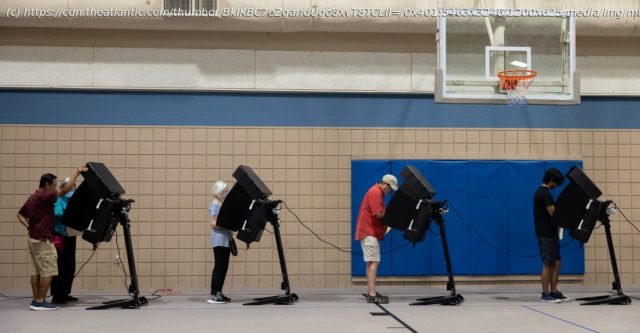The surprise defeat of a ballot measure may hold lessons for November and abortion access in other states.
Last night, a primary election in Kansas marked “the first time that voters had a chance to weigh in directly on abortion since the Supreme Court scrapped Roe,” Russell Berman reported. Kansans voted resoundingly against an amendment that would have permitted the state’s Republican-controlled legislature to ban abortion without exceptions. I called Russell today to talk about what the result means for the midterm elections and for abortion legislation across the country.
But first, here are three new stories from The Atlantic.
Isabel Fattal: The article you wrote last night is headlined “The Kansas Abortion Shocker.” What was so surprising to you about this result?
Russell Berman: The surprise in this referendum was how big of a win it was for the abortion-rights side and how big of a defeat it was for the anti-abortion side. The polls, both publicly and privately, were showing a close race. Even when I was interviewing people yesterday, before the polls closed, I was asking them to respond to various scenarios—a close win for the abortion-rights side, a close defeat or a decisive defeat for the abortion-rights side. I didn’t even ask about the scenario that we actually saw, which was essentially a landslide rejection of the amendment and a victory for the abortion-rights side.
Isabel: You note in your article that this result is sure to buoy Democrats’ hopes to “capitalize on the overturning of Roe in the midterm battle for Congress.” Can you explain what the Kansas results might mean—or might not mean—for November?
Russell: We start with a midterms that, based on history and the current political environment with President Biden’s low approval ratings, are expected to be difficult if not downright bad for Democrats. The assumption, frankly both before and even after this result in Kansas, is that Democrats will lose the House. In the Senate, it’s more of a toss-up, but Democrats could easily lose the Senate as well. The big question is, what could change that environment? Democrats had been looking at the Dobbs decision that overturned Roe v.






